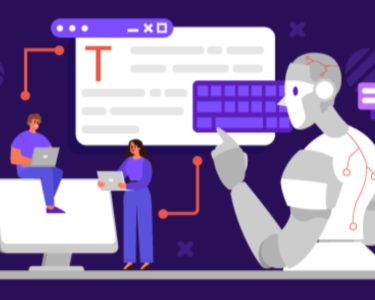
AI in Healthcare: Transforming Patient Care with Smart Solutions
Artificial intelligence (AI) has emerged as a transformative force in the healthcare industry, revolutionizing the way patient care is delivered. By leveraging advanced algorithms, machine learning, and data analysis, AI is empowering healthcare providers to improve patient outcomes, enhance efficiency, and personalize medical treatments.
Key Benefits of AI in Patient Care
1. Enhanced Diagnosis and Treatment:
AI-powered tools can analyze vast amounts of medical data, including patient records, imaging scans, and lab results, to assist healthcare providers in making more accurate diagnoses and determining optimal treatment plans. This enables early detection of diseases, personalized treatment approaches, and improved patient outcomes.
2. Personalized Patient Management:
AI algorithms can create tailored care plans based on individual patient characteristics, such as health history, lifestyle, and genetic predispositions. By considering a patient’s unique needs, AI can optimize medication dosages, monitor adherence, and predict potential health risks, promoting proactive and preventative care.
3. Remote Patient Monitoring:
AI-enabled devices and applications allow healthcare providers to monitor patients remotely, collecting real-time data on vital signs, activity levels, and sleep patterns. This enables continuous monitoring, early detection of complications, and timely interventions, especially for patients with chronic conditions or disabilities.
4. Improved Decision-Making:
AI algorithms can assist healthcare providers in making complex clinical decisions by analyzing historical patient data, medical guidelines, and best practices. This provides insights into treatment options, potential side effects, and risk factors, enabling more informed decision-making and improved patient safety.
Smart Solutions Powered by AI
1. Virtual Health Assistants:
AI-powered virtual health assistants offer 24/7 support, allowing patients to consult with healthcare professionals, schedule appointments, and access health information from the comfort of their homes.
2. Medical Image Analysis:
AI algorithms can analyze medical images, such as X-rays, CT scans, and MRIs, to automate the detection and classification of diseases with high accuracy. This speeds up diagnosis, frees up radiologists’ time, and improves patient outcomes.
3. Precision Medicine:
AI is enabling the development of precision medicine, where treatments are tailored to individual patient genetic profiles. By analyzing genetic data, AI can predict disease risk, determine optimal drug dosages, and minimize adverse effects.
Ethical Considerations and Future Trends
1. Privacy and Security:
The use of AI in healthcare raises important ethical considerations, particularly regarding patient privacy and data security. Healthcare providers must ensure robust data protection measures to prevent unauthorized access and misuse.
2. Collaboration and Trust:
Successful implementation of AI in healthcare requires collaboration between healthcare professionals, AI developers, and patients. Building trust and addressing concerns regarding AI’s impact on patient-provider relationships is essential.
3. Future Innovations:
AI in healthcare is constantly evolving, with advancements in natural language processing, robotics, and wearable sensors. These innovations promise further enhancements in patient care, enabling personalized health management, remote surgeries, and AI-assisted drug discovery.
Conclusion
AI is transforming patient care by providing healthcare providers with smart solutions that enhance diagnosis, personalize treatment, and improve patient outcomes. As technology continues to advance, the integration of AI into healthcare is expected to reshape the industry, delivering a more efficient, effective, and patient-centric healthcare system.


